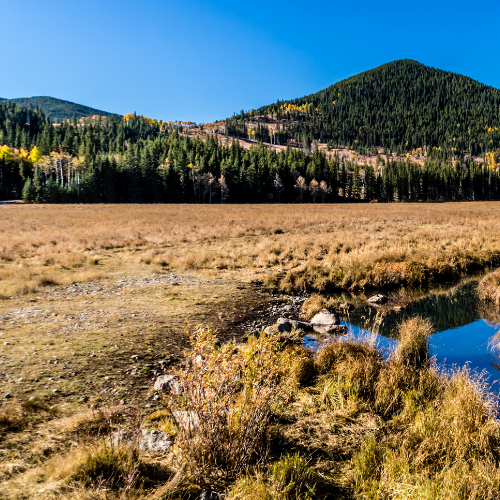A 'whodunit' mystery game to solve the climate crisis and the coronavirus pandemic
PURPOSE
Did climate change cause the latest 2019-2020 pandemic? NO! There is no scientific evidence to support a direct link however, there are numerous similarities with how and why we should respond to both crises.
Through this case study, participants will learn about the interconnected nature of our global systems and explore potential solutions that build community resilience against complex problems.
GRADE LEVELS
10-12
SUBJECTS
Science
Social Studies
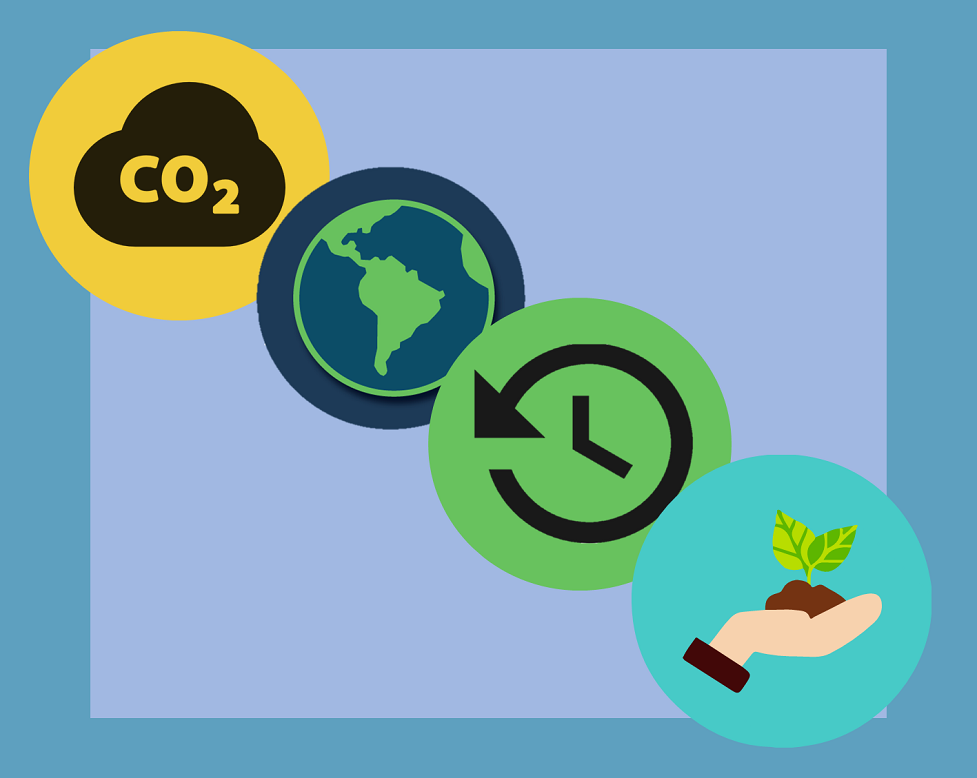
SKILLS DEVELOPED
Communication
Problem Solving
Collaboration
Creativity and Innovation
Critical Thinking
Personal Growth and Well-being
MATERIALS NEEDED
Internet connection to view articles, videos, etc.
Note pad and pen/pencil for taking notes
A magnifying glass for dramatic effect (optional)
TIME
60 minutes
Part 1: What are the issues?
1. Click on the following images to learn what are the issues?
Climate Change 101 (in under 2 mins!)
What is the main driver of climate change?
In <5 mins, refresh on what the Coronavirus is all about!
2: Briefly research what groups are most at risk to Covid-19. What groups are most at risk to climate change? Are there overlaps?
**Watch out for fake news sites! How credible is the information you are reading?**
3: What are the parallels between climate change and the pandemic in terms of:
- Individual impact
- Local/national impact
- Global impact
Part 2: Who is responsible? A mystery game
- Begin by choosing a role card for yourself as this is the character you will be for the game.
- Follow the steps provided and try to solve who is responsible for BOTH climate change and the pandemic. Who or what started it? Who is responsible for ending it?
- If you are stuck on a riddle… try again at the end and if you are still stumped, simply look up the answer!
HINT: Do your best to play your character! Try to limit stereotypes and note that the people you are representing are…. Well they are human! And as humans our experiences are not as black and white as they may seem.
Role Cards

Mark Dupont is owner to a small café located near the Red River in Winnipeg, Manitoba. Despite his business having to close during the pandemic, his husband is fortunately still bringing in income as a junior high teacher. Mark enjoys being home to spend more time with his family and learning more about his Métis background. Even so, he is having a tough time grappling with the future of his business with the climate crisis and the pandemic. Not only is his café closed until further notice, but he recently learned how vulnerable his business is to flooding from the Red River. The last major floods occurred in 1950, 1966, 1979, and 1997… Is another due in the coming years?
The convergence of these two crises has Mark asking… “Qui est responsable?!”

Sally Choi is the Chief Medical Officer for the province of Ontario and prior the pandemic, much of her focus was to research how climate change impacts (like increased heat waves, droughts, floods, etc.) physically and emotionally affects her citizens. For example, heat waves alone impact cardiovascular, respiratory, and mental health with the hardest hit being the elderly. Since the start of the pandemic, Sally has been touring across the province to meet with health workers. Currently, her main priority is figuring out how to best coordinate health facilities and ensure appropriate mental health measures are being taken by overworked doctors and nurses.
With so many things on the go, Dr. Choi barely has time to think! But any opportunity she gets to breathe… she asks, “What else can be done? Who is responsible?!”

Jean Johnston was recently hired as an educator for an environmental non-profit. Prior, she did research at a local college studying how environmental degradation can impact human health and well-being. She discovered that individuals exposed to more air pollution are more susceptible to catching diseases and viruses, no matter how healthy they may be. In another study, she also looked at the importance of natural spaces for mental well-being and as an educator, consistently encourages her students to go outside to find wellness. Unfortunately, she has not been able to teach during the pandemic but has been visiting her local parks for comfort and solace.
During her hikes, she contemplates how we all got here and wants to figure out… who is responsible!?

Dev Chaudry and his family recently left his rural farm in Bangladesh as increased climatic instability has made it too dangerous to continue running the family farm. Dev and his family decided to start a new life and join their Canadian relatives who have previously immigrated to Canada. In Canada, he is now working as a grocery store clerk, working more hours than usual during the pandemic. Although he is grateful for having an income, he worries about contracting the virus and passing it onto his family. This constant worry has him asking numerous questions!
“Should I keep working despite the dangers? But what about all the families that need grocery stores to stay open? Who is responsible for everything?!”

Lacey McFarlin of McFarlin farms is the 4th generation to run her family’s agriculture business based out of Saskatchewan. Her farm mostly grows potatoes and supplies some of the biggest restaurants across Canada. With many restaurants closed or reducing their services, the need for potatoes have dropped! Border closures has also meant shortages in fertilizers and is also making it difficult to transport her harvest to the United States. Fortunately, Lacey also grows lentils and sunflower, which is bringing in some income. This past year, the growing season has also been much wetter than usual, causing difficulties in harvesting what she does have… and last year it was too dry!
“Working in agriculture is no easy task… and the difficulties are further compounded with the ongoing crises! What are we to do? Who is responsible?”

Jefferey Little Light is from Tsuut’ina First Nation in Treaty 7 territory and his ancestors have fought for the protection of the land, air, and water for as long as he can remember. His personal passion is in protecting the air, which he calls the Sky River. As of late, Jefferey is noticing how a changing Sky River is impacting his people’s culture and traditional way of life. For example, hunting seasons are shifting, and he is no longer able to predict the growth of certain medicinal/edible plants.
To add to the matter, the Covid-19 pandemic is causing fears among his people. Jokingly, Jefferey notes that this is not the first time his people are met with a pandemic – “You know, we’ve been through smallpox, scarlet fever, measles, influenza… all brought over by early settlers!” But behind the laughter, he still fears not having enough resources to keep everyone safe. He also does not think his people will receive the same level of support that urban cities are currently receiving from governments.
Who is responsible?

Sherry Tate is a long-time oil and gas worker in Alberta who has been working in the oil sands for 10 years. A few years ago, she was hired on as a project manager. With widespread concerns for the climate crisis, many investors have been pulling their funds out of the oil and gas industry and her team has been hard hit. In addition, low oil prices during the pandemic has meant Sherry having to lay off many of her key team members, many who she has known for a long time and sees as her close family members. “Laying off over half my team is by far one of the most difficult tasks I’ve been given in my career… I cannot imagine what their families are going through right now!”
Sherry hopes to never have to lay off her workers again and wants to know… Who is responsible!?

Aretha Jenkins, 81 years of age, has lived independently with her husband in Victoria, BC for many years and counts herself fortunate to not be in a group home during the pandemic. However, Aretha fears she will eventually need extra care as she experienced a series of fainting spells last years during the summer heat waves, with some waves being the hottest on record! To ensure their independence Aretha is depending on family to take care of them in the coming years. In particular, she is counting on her daughters and nieces even though many are busy with their own families and/or careers.
Despite some health issues between her and her husband, she is simply glad the rest of her family are safe and regularly come by for visits. When visitors come by, they often find themselves trying to figure out… who is responsible?

Thanks to the pandemic school is out, summer is here, so it is time to celebrate right? Matthew Mohammed is excited for an early summer but some days, it is hard to enjoy his free time with news of the pandemic and climate change constantly looming in the background. And it does not help that the news is constantly on replay in his home. What completely baffles Matt is how one minute the news is talking about all the government aid going to the pandemic… and in the next moment, there is a news piece on climate change yet, “What, WHAT I SAY, are governments doing about climate change?!” As the summer drags on, Matthew is finding it hard to stay optimistic and the pandemic is further compounding his feelings of despair.
“What is a youth to do? I am only one person and can’t do much on my own. Who is responsible for all this?!”
Game Instructions
Step 1: Show and Tell
Share with everyone who you are and how you are impacted (i.e. read your role card to each other!)
Step 2: Interview
Interview the person to your left. Ask them the following questions to learn more.
- How have you been impacted by climate change and the pandemic?
- How have you potentially contributed to either crises?
- Would you say you are a GUILTY of being responsible for these crises?
*Note: For added effect, scribble in your note pad ferociously like you are taking really good notes.
Step 3: First Clue
Examine the picture below.
“Similar but different… How so?”
Note: Amanda Shultz, titled “Alberta Trees” (quote was added and not originally to the art) – English, French, and Cree
Q. What does it say? How does this connect to who is responsible?
Step 4: Second Clue
What is the key ingredient for a seed to grow?
*Note: For added effect, use the (optional) magnifying glass to examine this clue.
Hint: Seeds do not need much to grow… in fact most seeds do not require water, soil, or sunlight to germinate!
Give the riddle your best shot. If you are completely stuck, look up the answer!
Q. How does the answer relate to your character?
Step 5: Third Clue
Where does today come before yesterday?
Hint: It is a physical object.
Q. Once you discovered the answer find this object and look for “reciprocal.”
Step 6: Fourth Clue
What runs all around a backyard, yet never moves?
Hint: Fill in the blanks to find the answer using the musical composition below…
_ _ _ n _ _
Q. Not only is this the last clue but it is the LAST thing everyone needs in a crisis… why?
Step 7: Put All the Clues Together
- Problem: who is responsible for BOTH climate change and the pandemic?
- Who or what started it?
- Who is responsible for ending it?
Do you think you solved the mystery?
If so… UNVEIL THE CURTAIN!
KEEP SCROLLING!

Solution
The answer? We are ALL responsible and therefore we are ALL the solution!
Putting the Clue Together
Clue 1: Photo of different tree with quote “Similar but different… How so?”

We are all going through the same crises but each and every single individual is experiencing them in very different ways! Put in another way, we are all in the same storm but not all in the same boat! We must keep that in mind when we are looking at solutions as well! There is no such thing as a one-size-fits-all solution and in effect, we are all the solution in some way
Clue 2: Besides water and soil, what does a seed need to grow? Why, the dark of course!

Metaphorically speaking, we are all seeds! Like a seed, we are enough. Everything we need to grow is found within ourselves. And one of the key ingredients to growth can sometimes be darkness! Without the bad, we would not know the good. However, we cannot make light of crises and it is important to acknowledge how everyone is being impacted. But where will each of us go from here? How will each of us grow from this?

Clue 3: Where does today come before yesterday? In the dictionary!

As part of this clue, you also had to look up the term reciprocal. How does the definition relate to the solution?
Clue 4: What runs all around a backyard, yet never moves? A fence! The last thing we should do in a crisis is build a fence!

Ultimately, this mystery game is about how people can care for one another by coming together… not building barriers!
“We all want the same thing: our health, our friends, and our family, and our loved ones, our community, our city, our province, and our country. When it all comes down to it, that’s what matters. That’s what coronavirus threatens. And that’s exactly what’s at risk from climate change too.” – Katherine Hayhoe, Canadian Climate Change Specialist
Try keeping these clues in mind the next time you talk to someone about climate change or the pandemic.
How are we all the solution?
For the most part, Covid-19 has brought us together. By sharing the Covid experience, we have gotten much farther than playing the blame game!
How is your character card a solution to either crises? For e.g. what can farmers do to benefit the climate AND pandemic? What can business owners help with? How can we support each other whilst playing our various roles?
For example, what can I personally do?
Solution example: Build a community garden
Pro for climate
- Reduced transportation emissions
- Reduced fertilizers and emissions from processing fertilizers
Pro for pandemic
- Local food availability –> less reliance on imports
- Time outdoors optimal for physical and mental well-being
You may start your research with Project Drawdown, a website where you can explore all the possible climate solutions out there in 2020!
How are these solutions also connected to solving future pandemics?

More Bring Nature Home for Families
Bring Nature Home is our online database of tried-and-tested CPAWS Southern Alberta activities! Here are some ways that you can bring nature home (or to the classroom) today!
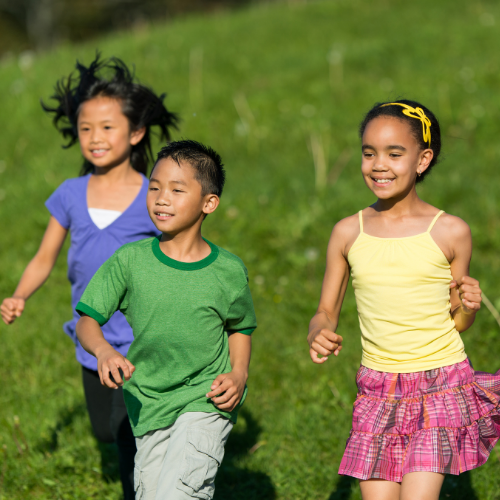

Sound Stalk Game
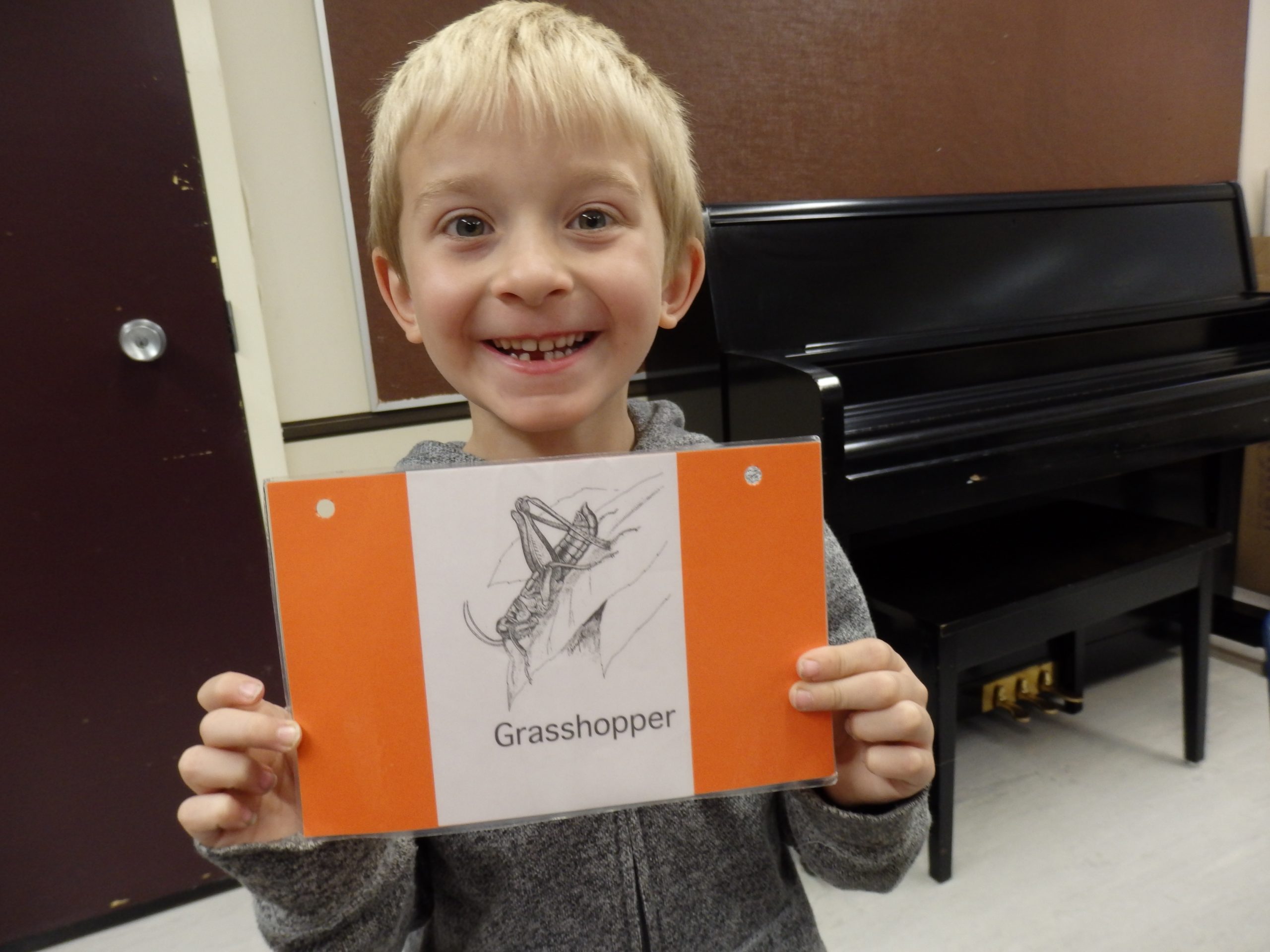

Who am I?
